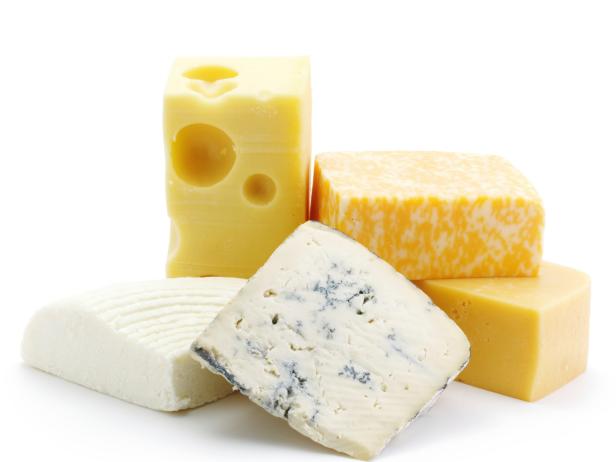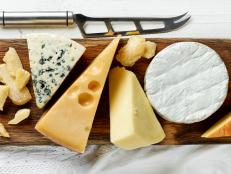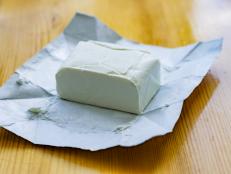Cheese Basics

Galina Ermolaeva
Cheese is one of my favorite foods, but when it comes to getting all the cheesy facts (and there's a ton!), I turn to the professionals. I had the opportunity to chat with the owners of Sartori Cheese who gave me pretty interesting tips for buying, storing and even pairing cheese.
- Cheese is a great snack (in moderation)! One ounce of Parmesan has more protein than red meat, 33% of the recommended daily amount for calcium, and vitamins such as B12 and riboflavin, with 11% and 8%, respectively.
- With some cheeses, you may experience a slight crunchy feel. That crunch is actually crystals called calcium lactate that forms as part of the aging process. They can also appear as white spots on the cheese and are a sign of a well-aged cheese.
- Wisconsin is the only state in the United States that has a Master Cheese Maker Program. This is an advanced education program for experienced cheese makers. The three year program requires a minimum of 10 years as a licensed cheese maker prior to applying to the program.
If possible, you should visit a cheese shop within your area that has knowledgeable staff that can educate you and guide your choice. Many times, these cheese shops will allow you to sample a piece ahead of time and most likely know about the manufacturer and their craft.
To best preserve your cheese, store it in a refrigerator between 34-40 degrees Fahrenheit in the vegetable drawer where the air is more humid. Once opened, wrap it tightly in plastic wrap, place it in a sealed plastic bag or in a tightly sealed container to prevent the cheese from drying.
Yes, it depends on the type of cheese. For instance, a cheese such as a fresh Asiago has a shorter shelf life compared to an extra-aged hard cheese.
If the color or odor is uncharacteristic of the cheese, it is a sign that something isn't right and it should be discarded.
Our Reserve Espresso BellaVitano is hand coated with freshly ground Italian roast espresso beans. It pairs well with wines like Pinot Noir, Shiraz, Merlot, Chardonnay, and Sherry and beers like stout, porter, trappist style ale and fruit beers.
Our Reserve Balsamic BellaVitano is immersed in an imported 6-year old Italian balsamic vinegar then aged to allow the light fruitiness from the cheese to marry with the sweet and tangy balsamic vinegar. The result is a sharper taste with a hint of raisins. It pairs well with wines like Chardonnay, Pinot Noir, Asti Spumanti and Sherry and beers like smoked porters, weizen and pale ale.
For more pairing ideas, check out our beer, wine and food pairing tool online.
Sartori is a family owned, fourth generation, high quality cheese manufacturer in Plymouth, Wisconsin. You can find them online at www.SartoriCheese.com

































